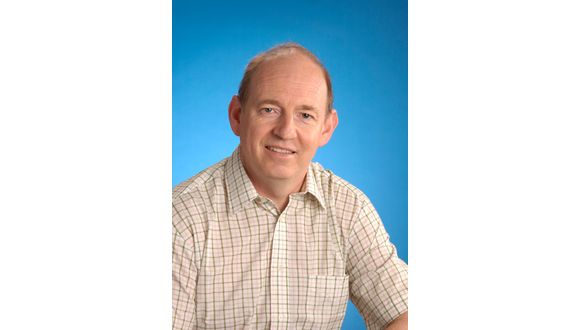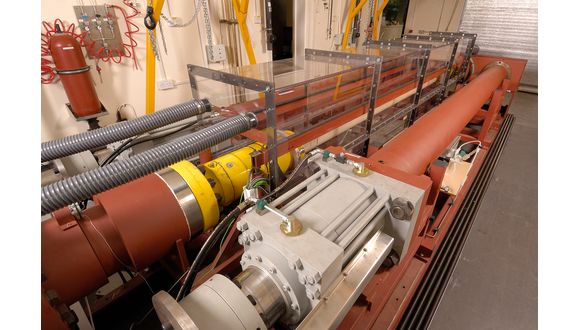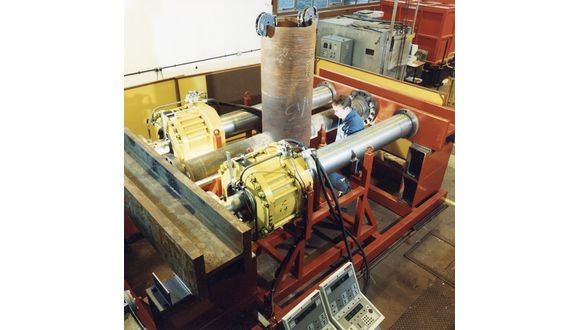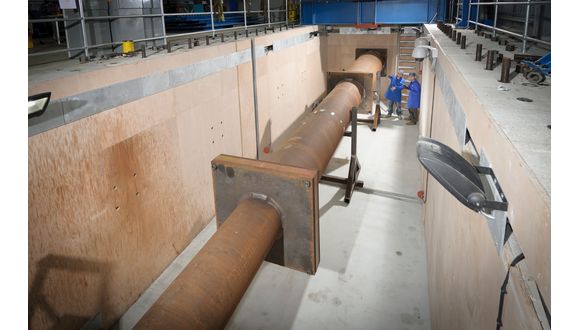Wed, 03 February, 2021
TWI has a great deal of experience providing bespoke services to our Members, which sometimes require the design and build of specialised equipment in our laboratories. This ability is one of the strengths of TWI and part of the reason we have become so respected by industry over the last 75 years.
With 2021 being the 75th anniversary of The Welding Institute (and by extension TWI Ltd), we decided to delve into this aspect of our work by talking with technology consultant, Phil Robinson, who has been working at TWI since 1973 when he joined what was then known as the Engineering Department.
 Phil Robinson
Phil Robinson
Phil, can you start by letting us know about your role at TWI now?
I am now a technical consultant for all the mechanical testing labs at TWI, my duties include coaching technicians; designing test rigs; designing test rig control systems;
writing control, data acquisition, and analysis software for test setups; and cost estimations for testing.
Your work must have changed quite a lot since you first joined, how was it then and how does that compare to what you see at TWI today?
When I started at TWI, we didn’t have any computer systems so any electronic control system had to designed and manufactured using traditional electronics. This made things difficult for bespoke testing. Today it is much easier with the current technology that is available, where users can write software, and program the hardware to do what you want.
There is also much more instrumentation and equipment that you can buy off the shelf now in order to build a system to carry out bespoke testing.
 The large 1800 kN axial test rig for testing flexible risers in a specific H2S environment
The large 1800 kN axial test rig for testing flexible risers in a specific H2S environment
As mentioned above, you have had a hand in designing and building bespoke equipment at TWI; why is this sometimes needed, and what sort of equipment have you built in your time?
We build bespoke test rigs in order to carry out testing on materials/structures that our clients want to test in a specific way/environment.
I have designed and built the following test rigs:
- The 600 kN axial fatigue test rigs in the H2S lab (known as the blue whales)
- The 200 kN axial fatigue test rigs (known as the blue dolphins)
- The 6000 kN axial fatigue test rig for testing large chains in a sea water environment
- The 40000 kN Wide plate test rigs
- Large scale biaxial test rigs
- Large pipe bend test rigs
- The large 1800 kN axial test rig for testing flexible risers in a specific environment
I also designed and wrote most of the data acquisition, control, and analysis software for the testing labs at TWI, all to the required test standards, as well as designing the lab layouts.
Are there any particularly challenging or interesting projects that spring to mind from your time at TWI?
The ones that stand out are the large 1800 kN axial test rig for testing flexible risers in a specific H2S environment and designing and building pressure testing systems for long term test testing of lined pipes with internal pressures up to 1200 bar (up to 1 year on pressure). Another notable project was designing and building testing systems for long-term load hold testing of materials in environments (10000 kN, up to 4 years on load).
 Test rig designed by Phil to carry out fatigue testing on a biaxial tubular joint
Test rig designed by Phil to carry out fatigue testing on a biaxial tubular joint
How about the future, how do you see things changing in what we do and, also, why do you think it is important to retain our experience while helping to train the next generation of experts?
In the future, I still see TWI being asked to carry out bespoke testing, much of which is used to verify FE analysis.
One of the most important things about doing bespoke testing is the experience that the technicians and project leaders have accumulated over the years, and it is important that this knowledge is passed on to the next generation of experts so it is not lost.
Thanks for your time but, before you go, is there anything more you would like to add?
Every day is a challenge, which is a good thing, as it makes my job much more interesting.
 Test rig designed by Phil to ensure that TWI’s new pressure pit could withstand 15000 kn axil force on the end walls of the pit
Test rig designed by Phil to ensure that TWI’s new pressure pit could withstand 15000 kn axil force on the end walls of the pit